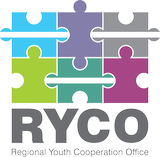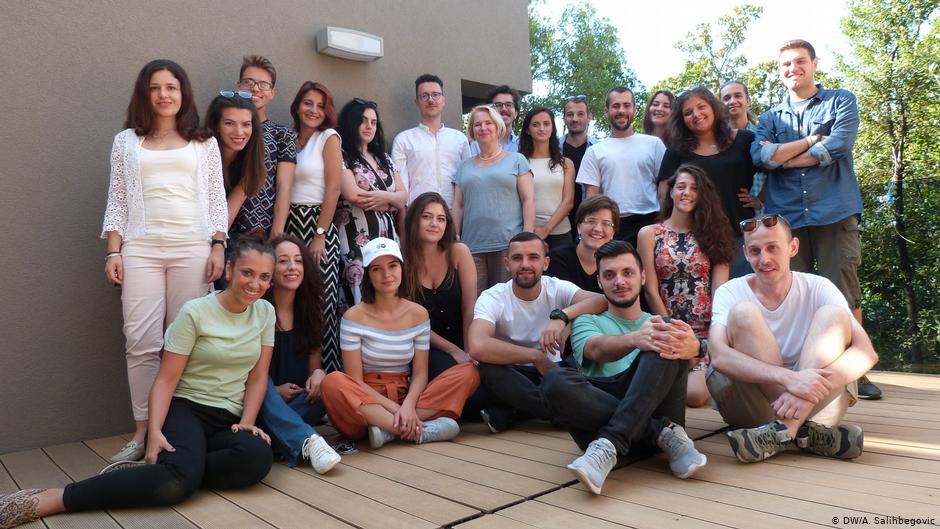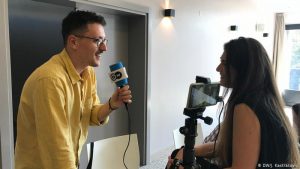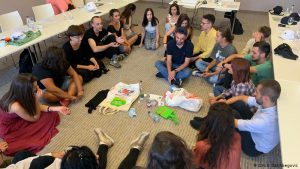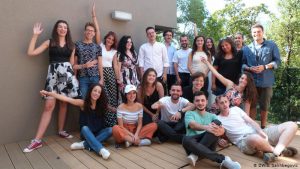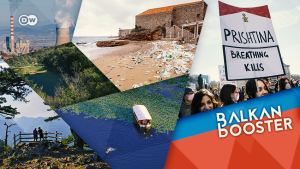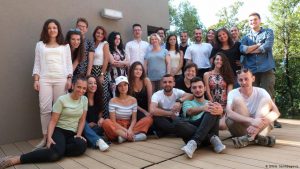WESTERN BALKANS – For the third year in a row, RYCO is partnering on the Deutsche Welle’s Balkan Booster project. The project connects twenty-one young journalists from the Western Balkans and the surrounding EU Member States. By using their smartphones, they will create and produce around two-hundred multimedia stories on environmental topics in the Balkans. Organized into nine teams, their special focus is to report on the joint issues in the areas of air and water pollution, waste recycling, construction of small hydropower plants, use of natural resources and other common environmental issues in the region.
Polluted air can freely move across the region, and the Balkan rivers such as the Drina are being equally beautiful and polluted on both sides – in Bosnia and Herzegovina, and in Serbia as well. Since environmental issues are common, young journalists are trying to address these stories and underline that causes for such problems are very often linked to the rule of law, corruption, and nepotism.
Head of the DW European Department Ms Adelheid Feilcke sees enormous potential in the topics that these young journalists are dealing with. “Environmental issues are motivating these young journalists. They equally want to draw attention to the problems, but as well to show possible solutions. Moreover, they are also motivating their generation to take greater democratic engagement,” Ms Feilcke pointed out.
The Balkan Booster project will also include youth from the Western Balkan neighbouring EU Member States – Bulgaria, Croatia, Greece, and Romania. One of the first stories prepared by young journalists from North Macedonia, Greece, and Albania presents key differences and environmental similarities among the EU Member States and the Western Balkans.
Ms Feilcke underlined the project’s two-sided importance for the young journalists. “For many of them, it will be the very first time to visit, feel, and enjoy the culture of the neighbouring societies still burdened with many prejudices. This way, they will learn how many similarities they have in common, but at the same time they will jointly discover the importance of the environmental issues for them, their life and their societies.”
Among other accomplishments, the project has contributed to the change of young people’s perceptions since some of them got an opportunity to travel across the region and meet their peers in the neighbourhood for the first time.
As highlighted by Mr Lorin Kadiu, who comes from Albania, this is a very inspiring experience for every young person. “Meeting young people from all over the Balkans is an inspiring experience for me. We feel more connected to each other but still we are learning about how much we have in common,” he said.
On the other side for Ms Efterpi Mouzakiti from Thessaloniki being a part of the project is a rewarding experience that tackled her previous knowledge about the region.
“Now, I completely differently understand the position of Greece in the Balkans. With our reportages, we can show that the common problems must be solved jointly, despite our differences,” she pointed out. Her colleague, Mr Petar Dogov from North Macedonia added that people have their ways of doing things but that they can learn a lot from each other. “This will make us better journalists, and it will be a useful experience that we will use in our work in the future,” he singled out.
Multimedia content produced in the framework of the Balkan Booster project is regularly being published on the social media channels of the DW in Albanian, Bosnian, Bulgarian, Croatian, Greek, Macedonian, Romanian, and Serbian language. A unique European project, the Balkan Booster reached over 6 million people only in 2018. Ž
Follow the work of young journalists on the social media by following the hashtag #dw_BalkanBooster.


